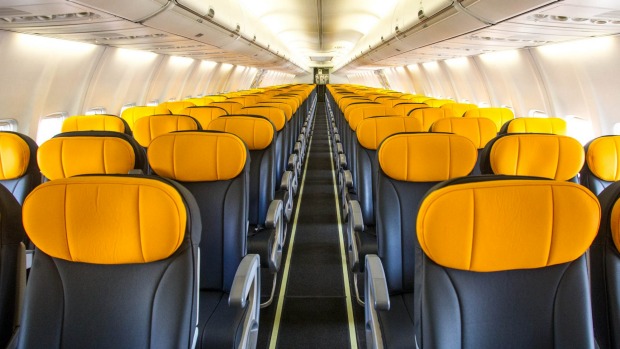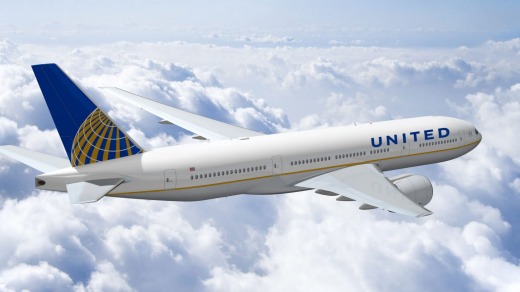
Rock-bottom fares once unique to low-cost carriers like Spirit and Frontier may, in the coming months, be offered by all three of the nation's legacy airlines, American, United and Delta.
Great news for you and your wallet, right? The answer isn't so clear-cut.
Spirit Airlines cemented its no-frills reputation a couple of years ago when it declared itself the "home of the bare fare": a ticket that doesn't include a seat assignment, a checked bag, even water. Frontier also offers bargain fares that don't include seat assignments, in-flight entertainment and checked or carry-on bags as well as a slightly more costly package called "the works," with privileges such as being able to choose your seat and bring a carry-on bag. Travellers have flocked to these airlines, drawn by fares like $US53 ($A73) each way between Chicago and New York on Spirit, and $US79 each way between Miami and Philadelphia on Frontier. Unwilling to lose customers in certain markets where the low-cost airlines fly, major domestic airlines are rolling out their own no-frills fares.

Delta was the first to take the plunge, introducing "basic economy" fares on routes where it wanted to compete with discount carriers. Basic economy tickets do not include advance seat assignments. They cannot be changed or refunded (after a one-day grace period). And there are no free upgrades for anyone.
Last year Delta put a number of changes to the fare rules into effect and announced that basic economy had spread to more than 450 markets since its introduction in 2012. Now the other big domestic carriers plan to follow suit. United said during its quarterly earnings call in January that it plans to introduce an entry-level fare "that will appeal to the purely price sensitive customer" in the second half of this year. American Airlines said during its quarterly call that it will roll out the first phase of a basic economy product in the same time frame.
For the most cost-conscious travellers, no-frills fares allow them to afford certain trips that they might not otherwise have been able to take. And, of course, no-frills fares are good for the airlines. "The more we segment our fares," Jim Compton, vice chairman and chief revenue officer for United Airlines, told investors during the most recent earnings call, "the better opportunity we will have to minimise revenue dilution."
It's too early to know how these no-frills fares will affect different types of travellers. But the big domestic airlines are in the habit of copying one another, which suggests that Delta's basic economy fares are the best indicator of what's to come.
For travellers who frequently need to change their tickets, such fares are problematic because voluntary changes are not allowed.
For elites, the restrictions already implemented by Delta on such seats seems to send a message: We value your loyalty? Sometimes.
For the occasional leisure traveller, how helpful the new fares will be remains to be seen. But let's say that at some point you spot one of these rock-bottom fares on a big domestic carrier and it's on par with a fare from, say, Spirit. Which carrier do you choose?
As a general rule of thumb, don't assume that a low-cost carrier, or a legacy carrier that offers no-frills fares, always has the best price. You still have to do your homework, which means comparing prices as well as reading the fare rules, especially with regard to the flexibility of your ticket and its ability to earn you miles in your preferred program. Also look at which airline offers the most convenient flight times and airports. If possible, spending a few dollars more can be worth it.
If looking at the fare rules and flight times doesn't bring you any closer to a decision, and all things are still equal, consider the planes and the perks. Spirit, for example, has seats that don't recline. There's no Wi-Fi. Or video. A Delta basic economy fare is on a plane with seats that recline. Wi-Fi is available. You get in-flight entertainment. And a snack. So in that case, if the fares are about the same and you're not trying to accrue miles, Delta would be a smart choice because you would have a more comfortable flight.
There is also the bigger picture to consider. Will economy seats with no benefits become the industry norm? Delta is already expanding its basic economy fares to routes where it does not compete with Spirit or other low-cost carriers. Will such fares further dilute frequent-flier programs by barring elites from upgrades? Will the big domestic airlines squeeze their smaller competitors, endangering their health and, in turn, healthy competition? We'll learn more before the year is out.
The New York Times